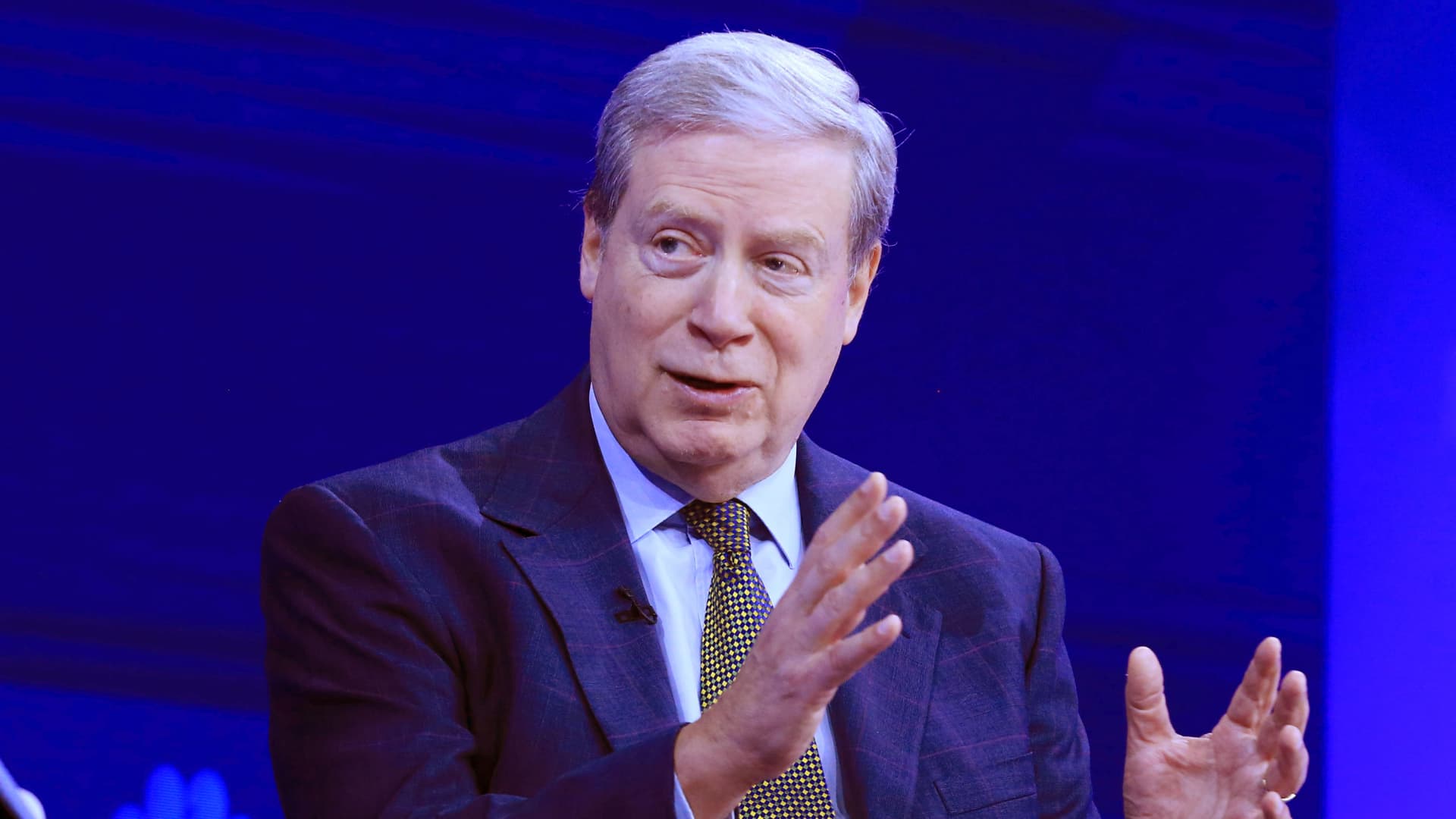Vice President Kamala Harris announced a slew of additional measures to curb future risks from artificial intelligence in a speech at the U.S. Embassy in London on Wednesday, while arguing that lawmakers needed to address the harms already being done by the fast-evolving technology.
On the same day that 28 countries, including the U.S. and China, signed a declaration warning of the potential for “catastrophic” damage to humanity from the most advanced forms of A.I., Ms. Harris used her address to highlight the ways in which the technology was already causing “existential” harm to individuals and communities.
“When a senior is kicked off his health care plan because of a faulty A.I. algorithm, is that not existential for him?,” she asked. “When a woman is threatened by an abusive partner with explicit deep fake photographs, is that not existential for her? When a young father is wrongfully imprisoned because of biased A.I. facial recognition is that not existential for his family?”
Ms. Harris, who is in Britain to attend Prime Minister Rishi Sunak’s global summit on the future of the technology, outlined guardrails that the American government will seek to put in place to manage the risks of A.I. as the United States asserts itself as a global leader in the arena.
Taken together, the steps Ms. Harris announced both flesh out a sweeping executive order President Biden signed this week and make its ideals part of broader global standards for a technology that holds great promise and peril.
They include a new draft policy from the Office of Management and Budget that will guide how federal agencies use artificial intelligence, which will be overseen by new chief A.I. officers. She also said that 30 other nations had joined a “political declaration” created by the United States that seeks to establish a “set of norms for responsible development, deployment and use of military A.I. capabilities,” as well as $200 million in philanthropic funding to help support the administration’s goals.
“The urgency of this moment must compel us to create a collective vision of what this future must be,” Ms. Harris said on Wednesday.
The executive order Mr. Biden signed on Monday is the United States’ most concrete regulatory effort in the A.I. arena to date. Among other things, it requires that companies report to the federal government about the risks that their systems could help countries or terrorists make weapons of mass destruction. It also seeks to lessen the dangers of “deepfakes” — A.I.-generated audio and video that can be difficult to distinguish from authentic footage — that could swing elections or swindle consumers.
“President Biden and I believe that all leaders, from government, civil society and the private sector have a moral, ethical and societal duty to make sure A.I. is adopted and advanced in a way that protects the public from potential harm and ensures that everyone is able to enjoy its benefits,” Ms. Harris said.
On Thursday, Ms. Harris will represent the United States at Britain’s A.I. Safety Summit, which has drawn tech figures, including Elon Musk, and representatives from countries that are advancing in A.I., including China.
The United States has trailed places like the European Union, China and Israel in regulating the technology, with Congress yet to pass major legislation on the subject and many of the provisions in Mr. Biden’s executive order largely unenforceable. But the administration has garnered agreements from top companies, which have pledged to manage risks in the race to capitalize on the technology, and has established a “Blueprint for an A.I. Bill of Rights” that focuses on consumer protection.
Among the other announcements on Wednesday was a “virtual hackathon,” in which the White House will invite teams of technology experts to build models that can intercept unwanted robocalls from fraudsters who use A.I.-generated voices to target vulnerable populations, like the elderly.
Ms. Harris’s messaging put a distinct emphasis on the consumer protection aspect of A.I., including how it could exacerbate existing inequalities. Research has shown that A.I. programs can inadvertently produce biased results that discriminate by race, gender and age.
Ms. Harris referred to the “full spectrum” of risks that have already emerged, such as bias, discrimination and the proliferation of misinformation, and argued that A.I. safety should “be based on the public interest.”
Ms. Harris’s trip to Britain adds to her role as a diplomatic force for the administration, having now visited 20 countries and more than 100 foreign leaders since her election. It also adds to her growing portfolio, which includes some of the toughest issues facing the United States, like the migration crisis on the southern border.
While in London, Ms. Harris also plans to discuss the wars in Israel and Ukraine with Mr. Sunak. She and her husband, Doug Emhoff, will have a private dinner with Mr. Sunak and his wife, Akshata Murty.
Cecilia Kang contributed reporting.













